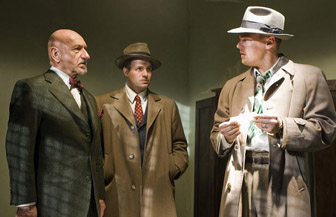|
|
Book vs. MovieShutter IslandBy Russ BickerstaffMarch 1, 2010
The Movie The biggest success of the film is reversing the Shyamalanian nature of the novel without significantly changing the plot. One can safely go into the film knowing that Leonardo DiCaprio is playing a man who is undergoing a radical form of therapy without that knowledge causing the film to lose any of its dramatic impact. Some if this has to do with the nature of the dramatic medium of cinema. Some of it has to do with really compelling performances by some really, really talented actors. I like to think that at least some of it has something to do with the overwhelming storytelling talent of legendary film director Martin Scorsese. Scorsese loved the idea of working on a psychological horror piece. Here he approaches the cinematic language of horror with his own distinct accent that has been honed on some of the most interesting dramas of the let 20th century. There's a freshness there. Even as you're seeing those same old, spooky corridors of a mental institution and some of that same insanity that has populated horror films since the dawn of cinema, there's a very distinct and distinctly new feeling that Scorsese brings to the screen and it goes a long way towards making this an entertaining film in spire of its source material.
[ View other columns by Russ Bickerstaff ]
[ View other Book vs. Movie columns ]
[ Email this column ]
|

|
|
|

|
Friday, November 1, 2024
© 2024 Box Office Prophets, a division of One Of Us, Inc.


